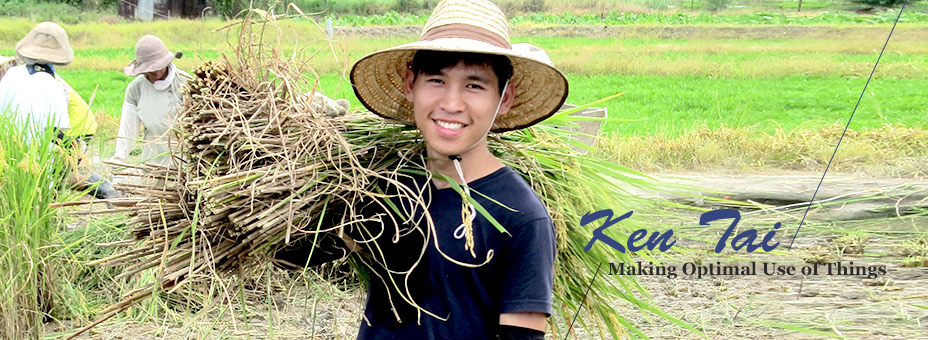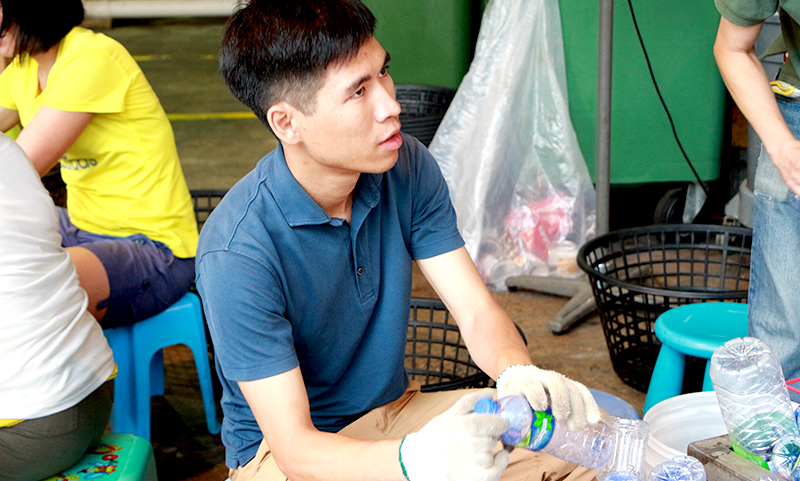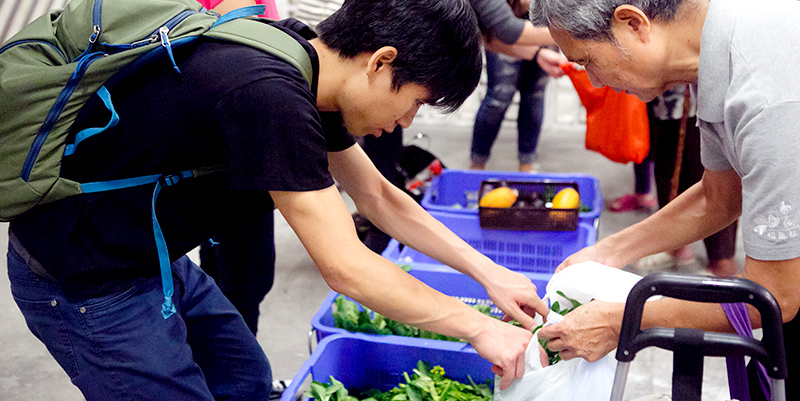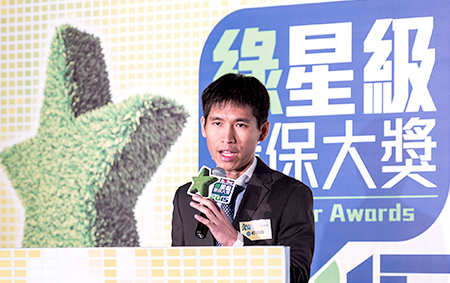
Ken Tai, a CUHK physics alumnus and founder of the ‘Belongings and Life’ Facebook page, shares how he shops and maintains products that will last a lifetime.
1. When did you start cultivating the values of minimalism?
A few years ago, I took part in a local farming camp and worked as a volunteer for two weeks at a rice paddy in Sheung Shui. Besides sweating under the sun, we also had to prepare for rainy weather. I even made compost from food waste with my own hands. At the farm, we washed our clothes by hand and aired them out to dry on self-made structures. Inspired by this minimalist lifestyle, I started reflecting on whether city dwellers are overly reliant on material things. Can we claim that faulty product design is the reason for their frequent replacement? Or is it because we want to look trendy by owning the latest products?
Around two years ago, I decided to combine the elements of ‘environmental protection, durability, lifestyle and good design’ and set up the ‘Belongings and Life’ Facebook page to share with the public how we can choose products with a durable design that may even last a lifetime.
2. What would you do with damaged objects?
I would think of ways to repair them. Take for instance my vertical computer mouse, which I have salvaged from two ‘catastrophes’. Initially, its micro-switch was not working well and did not click properly. Fortunately, I had another damaged mouse, so I disassembled it, removed the relevant component and transplanted it into my vertical mouse. To my surprise, it came alive. On another occasion, I dropped it on the floor accidentally, causing the scrolling sensor on the bottom of the mouse to malfunction. After adding a black pad to it, the mouse started working normally again and is still in use today.

3. Is your choice of a minimalist lifestyle influenced by your physics studies at CUHK?
My physics background taught me to look at the world rationally. It made me realize that many products with a fashionable appearance are less than perfect and not necessarily practical. Furthermore, CUHK allowed me to study one or two basic philosophy courses, which have honed my critical thinking skills and enabled me to analyze the so-called ‘trendy lifestyle’ even more objectively.
4. How do you promote environmental conservation in your workplace?
I used to work for a product testing company, so I know how to evaluate the functions, safety and durability of products. The experience has enabled me to offer tips on my Facebook page about what to watch out before shopping for things. If we shop blindly, we may end up discarding a lot, which is not only a waste of money, but also perpetuates an endless cycle of irresponsible production and consumption.
Currently, I teach mathematics in a secondary school, which is very supportive of my environmental advocacy efforts. For a time, the results of waste paper recycling was questioned by many, so I explained to my students that the paper scraps collected in our school are sent to a paper factory where they are recycled into different products such as paper boxes. When students are certain of the positive outcomes from their recycling efforts, they will be motivated to follow them through.

5. What other plans does ‘Belongings and Life’ have in the pipeline?
In order to convince the readers, many scientists tend to substantiate their cases with a lot of data when promoting the environmental cause. However, the general readers are usually not interested in the hard facts provided. That was why in recent years I’ve started using interesting images and light-hearted writings with topics relevant to daily life. In the Facebook page, I offer tips on what people should know when shopping for products and maintaining them. Hopefully, readers will rethink their lifestyles and consumption patterns. I believe the day will come for humans and nature to revert to a peaceful coexistence as before.
6. Can you offer a tip or two on smart consumption?
The use of ‘deceptive language’ in advertising has become increasingly sophisticated. Consumers are often misled without realizing it. We should take those overly attractive advertising claims with a pinch of salt and assess the products by their actual functions.
There are also some commonly-used sales gimmicks, such as the use of coupons for product redemption, causing many consumers to overlook whether the products are suitable for them. If you join the frenzy of collecting coupons, you may end up redeeming products you do not need. It’s better to purchase the products you find suitable and long-lasting.
7. Do you think the introduction of a solid waste charging scheme would reverse excessive consumption?
This is hard to say. As consumers are accustomed to a lifestyle defined by a shopaholic mindset, it is difficult to change the habit overnight. But the new measures may encourage the wise ones to donate their old belongings or categorize their garbage before depositing them into recycling boxes. So this is much better than sending those resources straight to the landfills.



